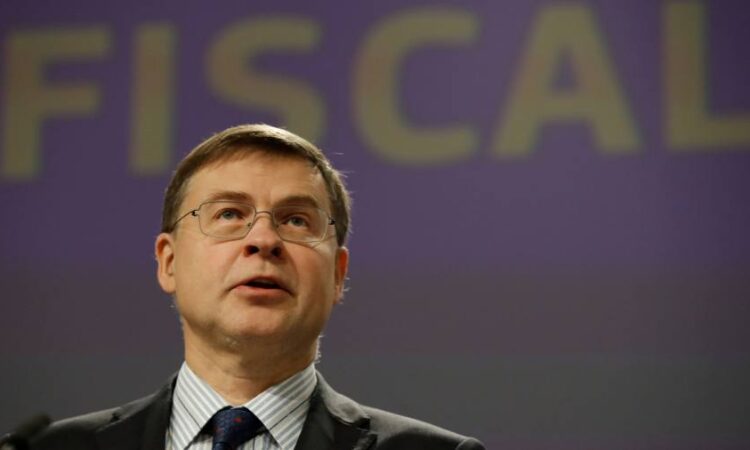
Brussels has urged EU countries to start phasing out massive energy subsidies as it prepares to reimpose budget rules three years after the coronavirus pandemic broke out.
The European Commission on Wednesday set out its plan for the return of the Stability and Growth Pact (SGP), which was suspended at the start of the pandemic in 2020 as EU governments spent huge sums supporting their economies and providing healthcare.
Rising energy prices as Russia cut gas supplies after its invasion of Ukraine last year prompted member states to provide support to people and businesses struggling to pay their bills.
But the commission said the measures should now be unwound as the cost of energy drops and deficits need to be reduced. Governments spent 1.2 per cent of EU gross domestic product in 2022 on energy subsidies and plan to spend 0.9 per cent in 2023, its figures showed.
“As energy prices head lower, we should move to phasing out most of the support measures, starting with the least targeted,” said Valdis Dombrovskis, executive vice-president at the commission.
“The time for broad-based fiscal support has passed. It is time to shift gear and look to the future. From a fiscal standpoint, we need to change focus.”
Dombrovskis said if support had been given to only the poorest 40 per cent of citizens last year, the cost would have been cut by three-quarters.
The subsidies in most countries disproportionately benefited the wealthy, who consume more, a senior commission official said. “The measures were not very well targeted and did little to reduce consumption.”
The commission confirmed that the general escape clause, which suspended enforcement of the SGP, would be “deactivated” at the end of this year. Under the pact countries are meant to limit budget deficits to 3 per cent of GDP and bring debt ratios to 60 per cent of GDP or below.
That means that from 2024 Brussels is likely once again to open so-called excessive deficit procedures against member states where the gap between public revenue and spending is overshooting the target, said Paolo Gentiloni, economics commissioner.
“Given the still high economic uncertainty, we have decided not to open any excessive deficit procedures until spring 2024,” he added.
Wednesday’s guidance is meant to help member states prepare their 2024 budgets. Gentiloni said fiscal rebalancing “should not be achieved by cutting investment but by limiting the growth of current spending”, given the need to fund green energy projects. “We do not need austerity,” he added.
Governments should provide plans of how they will comply with fiscal tightening by April.
These stability and convergence programmes “should set ambitious fiscal targets that respect the 3 per cent GDP deficit reference value and ensure a path for credible, continuous debt reduction, or for keeping it at prudent levels in the medium term”, Dombrovskis said.
The commission has forecast the euro area budget deficit will widen from 3.5 per cent of GDP in 2022 to 3.7 per cent this year. The number of member states breaching the 3 per cent figure is expected to increase from 10 to 12 between 2022 and 2023, including Italy and Spain.
Public debt in the euro area is expected to fall to 92 per cent of GDP in 2023.
The commission set out its guidance for public finances in 2024 amid a planned overhaul of the bloc’s budget rules that will probably involve the introduction of fresh legislation.
EU finance ministers are expected to debate the ideas at a meeting in Brussels next week.
While there is no consensus, the senior official insisted there was growing convergence on several issues. While the 3 per cent deficit and 60 per cent debt targets should remain, fiscal plans would probably be assessed over several years rather than an annual basis.






